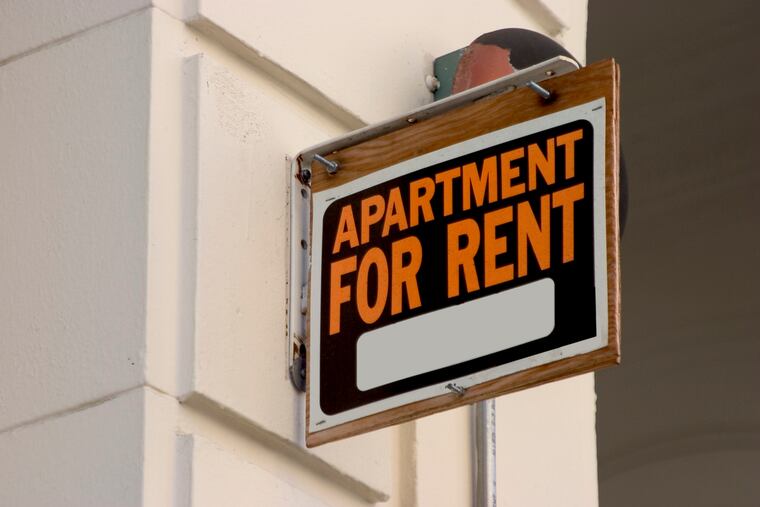Too many Philly landlords shutting the door on fair housing | Editorial
The new study is an important reminder that regardless to implementation of federal rules, Philadelphia must be vigilant about enforcing fair housing law.

The lack of affordable housing is one of the city's thorniest problems. In recent years, City Council established a land bank, debated an inclusionary zoning bill, and passed a construction tax that is waiting to be signed on Mayor Kenney's desk that would provide funds for affordable housing. A new study suggests that as difficult as it is, many landlords are making the situation even worse.
A new Urban Institute study, published last week, tested whether landlords in five cities including Philadelphia are willing to accept recipients of the Housing Choice Voucher program, also known as "Section 8," as tenants. Through the program, eligible families pay only 30 percent of their annual income on rent — the definition of "affordability" — and the federal government supplements the rest. Researchers called landlords to see whether they accept vouchers; two-thirds refused.
Housing vouchers allow low-income households to choose where to live – at least theoretically. It can be an effective way to ensure diversity in neighborhoods and allow low-income families to take advantage of higher-quality education options that richer neighborhoods provide.
However, the reality is another story: In cities all over the country, voucher holders find themselves clustered in poor areas, known as "voucher submarkets." That's the result, in part, of landlords discriminating against voucher holders, which is illegal under Philadelphia's fair housing ordinance. The city's law on discrimination in rental markets is enforced by the Philadelphia Fair Housing Commission. However, the process of enforcement is dependent on tenants complaining.
There are reasons for landlords to not want to rent to voucher holders. When renting to a voucher holder, landlords enter into contract also with the Philadelphia Housing Authority and subject themselves to housing code inspections.
In 2016, Philadelphia was one of the first localities in the country to release an assessment of its fair housing efforts as required by the Obama-era Affirmatively Further Fair Housing rule. Under the AFFH rule municipalities that don't follow a fair housing plan would risk losing funding. The future of the rule is unclear. In his first month in office, HUD Secretary Ben Carson delayed the implementation of the rule beyond 2020.
The new study is an important reminder that regardless to implementation of federal rules, Philadelphia must be vigilant about enforcing fair housing law.
According to the Pew Philadelphia Research Initiative, in 84 percent of neighborhoods in Philadelphia, one racial group has an absolute majority. The gap in median income between the richest and poorest zip codes in the city is more than $80,000. These gaps also translate to a life expectancy gap of more than 20 years between neighborhoods. Multiple studies have shown that moving children from growing up in high poverty neighborhoods to neighborhoods with low poverty is a game changer — contributing to their lifelong health, education, and economic success.
Discriminating landlords should not have the power to prevent mobility in our city. Vigilance in enforcement of fair housing laws and ensuring that all units are up to code so that landlords won't have an excuse to discriminate against voucher holders should be an integral part of any plan for affordable housing in the city.